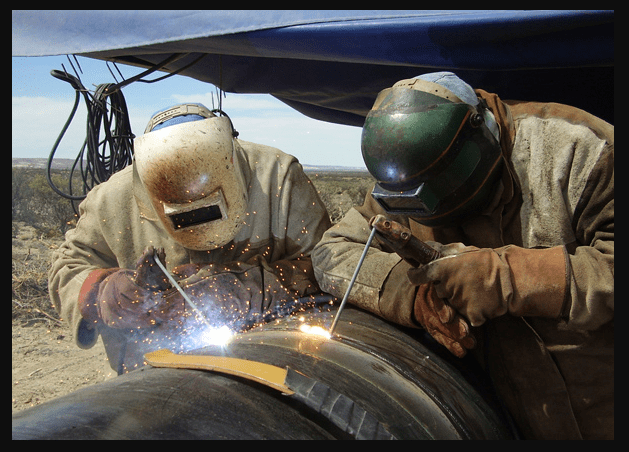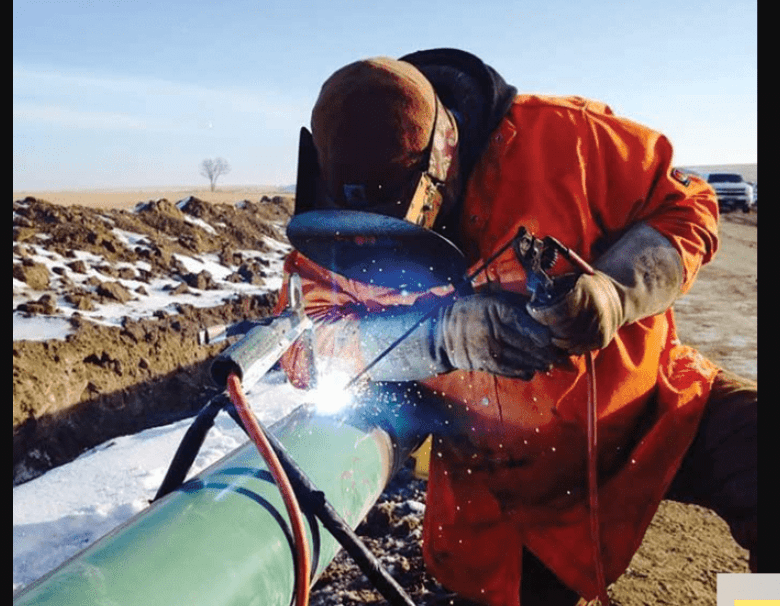
What does a Pipeline Welder Do?;-Are you looking for a career in welding? If so, you’re in luck! A pipeline welder is a highly skilled craftsman who uses a variety of welding techniques to assemble pipelines and other metal structures. In this article, we’ll take a look at what a pipeline welder does, the qualifications you need to pursue this career, and some of the benefits of working as one.
What is a Pipeline Welder?

A pipeline welder is a skilled tradesman who uses molten metal to weld pipe and other pipelines. They are responsible for ensuring that the pipelines are maintained and repaired in a safe and efficient manner. Pipeline welders must have a great deal of skill and knowledge in order to do their job correctly. They must be able to read blueprints and understand how the various components of the pipeline work together. They also need to be able to think on their feet in order to respond quickly to emergencies. Read More How to become a Pipeline Welder
What Kinds of Pipelines do they Work on?
A pipeline welder is a person who makes repairs or replacements to pipelines. They work on pipelines that carry oil, gas, water, or other substances.
Some common types of pipelines that welder may work on are:
Oil pipelines: These pipelines transport oil and other products from one place to another. Welder may be needed to make repairs or replacements to this type of pipeline.
Gas pipelines: These pipelines transport gas from one place to another. Welder may be needed to make repairs or replacements to this type of pipeline.
Water pipelines: These pipelines transport water from one place to another. Welder may be needed to make repairs or replacements to this type of pipeline.
What are the Qualifications for a Pipeline Welder?
- A pipeline welder is a highly skilled tradesman who helps maintain and repair pipelines throughout the United States.
- To become a pipeline welder, you will need to have an associate’s degree in welding or a related field, along with at least two years of experience.
- You will also need to pass a welding safety certification exam.
How much do Pipeline Welders Make?

Pipeline welders are essential in the construction and maintenance of pipelines. They use their skills to join two pieces of metal tubing together, ensuring that the pipeline continues to flow properly. As a result, pipeline welders can make a decent living wage. According to the Bureau of Labor Statistics, pipeline welders typically earn an annual salary of $50,620.
Where can I find a Pipeline Welding Job?
Pipeline welding is a skilled trade that typically requires a degree in engineering or related field. The job of a pipeline welder involves repairing and maintaining pipelines. Pipeline welding can be done on land, at sea, or in the air.
What does exposure to fumes mean?
Welding is a dangerous job, and many welders are exposed to fumes. Most of the time, these fumes are harmless, but there is always the possibility of injury if you are not careful.
When you are welding, you are breathing in gases that contain metals and other elements. These gases can be very dangerous if they get into your bloodstream. You may experience dizziness, headaches, and nausea if you are exposed to high levels of fumes for long periods of time.
If you experience any of these symptoms after being exposed to welding fumes, it is important to immediately go to a hospital. If you don’t go to the hospital, you could develop serious health problems such as lung cancer.
Pipeline welders need extensive safety training and know-how.
Pipeline welders are responsible for welding pipelines in a safe and efficient manner. They must have extensive safety training and know-how in order to handle the hazardous material that is common in pipelines. Pipeline welders must be able to properly identify the type of pipe they are working on, as well as the correct welding techniques for the material being used.
Pipeline welders must also be vigilant about safety in the workplace. They must always wear protective gear, including helmets and gloves, and be aware of potential hazards around the pipeline. Pipeline welders must follow all safety guidelines that are specific to their job, and they must always report any concerns or accidents to their supervisor.
Conclusion
A pipeline welder is a special kind of worker who helps build and maintain pipelines. These workers use their skills to connect two or more pieces of metal pipe together, which allows the oil and gas that we depend on to flow smoothly and without disruption. As a pipeline welder, you will need to be able to work with your hands, have good problem-solving skills, and have an eye for detail. If this sounds like something you would enjoy doing, then consider pursuing a career in pipeline welding!
FAQ’s
-
Do pipe welders make good money?
A pipeline welder can often earn between $36 and $52 per hour in arm pay, between $15 and $25 per hour in truck pay, and between $100 and $150 per diem.
-
Is pipe welding a good career?
Yes, due to the increasing need for pipe welders, there is good job stability and pay. People may also get the chance to travel thanks to it. Additionally, as pipe welding is one of the trickiest welding procedures to master, there is the option to transition to another type of welding.
-
Is pipeline welding a hard job?
But pipeline welders hold the distinction of having the toughest work in the oil and gas sector and being in constant high demand. A well-paid and steady career is pipe welding. If you are naturally talented in the trade and receive the necessary instruction, you can establish a good life via persistent labor.
-
How long does it take to become a pipe welder?
The average pipeline welding apprenticeship lasts three to four years and includes both classroom and on-the-job training. The majority of programs call for 2,000 hours of training under the guidance of a knowledgeable pipeline welder.
Be the first to comment